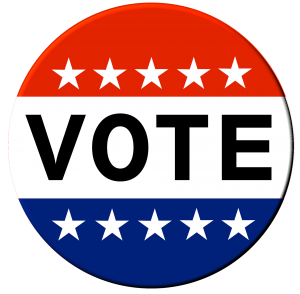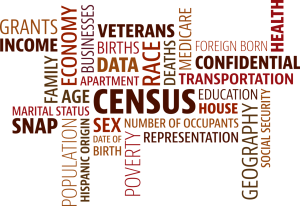
Five Ways to Help Get the Citizenship Question on the 2020 Census to Protect Our Democratic Elections
As the ACLU files lawsuit after lawsuit to try to stop the Commerce Department from adding the citizenship question to the 2020 census, 16 states have requested that the Census Bureau add the question.
![]()
As John Baker put it in his recent article featured in THE HILL titled “The importance of answering the citizenship question on the census,” having a reliable tally of the “citizen, voting age population” is needed in order for states to manage redistricting processes and to protect against voter dilution. According to Wikipedia, redistricting is the process of drawing electoral district boundaries. In most states, the responsibility of redistricting rests with the state legislature, however, some states have redistricting commissions or a specified representative that manages the process.
The U.S. Department of Commerce began looking at adding the question in response to a request form the U.S. Department of Justice (DOJ) to reinstate the question in order to better support the DOJ’s efforts to enforce the Voting Rights Act. The Voting Rights Act (VRA) was established in 1965 and is designed to prevent voter discrimination. The VRA prohibits literacy and other test devices as a prerequisite for voting, requires jurisdictions with large language minority populations to provide non-English ballots and oral voting instructions, and protects minorities form vote dilution. The Legal Information Institute describes two forms of vote dilution that impact minority communities. The first form is “cracking, “which involves splitting a minority community between different election districts in a way that reduces or eliminates their voting influence in elections. The second form of voter dilution typically seen is called “submerging,” which involves placing minority voters in election districts with enough non-minority voters to make the selection of a minority community’s candidate impossible.
large language minority populations to provide non-English ballots and oral voting instructions, and protects minorities form vote dilution. The Legal Information Institute describes two forms of vote dilution that impact minority communities. The first form is “cracking, “which involves splitting a minority community between different election districts in a way that reduces or eliminates their voting influence in elections. The second form of voter dilution typically seen is called “submerging,” which involves placing minority voters in election districts with enough non-minority voters to make the selection of a minority community’s candidate impossible.
 The states supporting the addition of the citizenship question include Alabama, Arkansas, Florida, Georgia, Indiana, Kansas, Kentucky, Louisiana, Michigan, Mississippi, Nebraska, Oklahoma, South Carolina, Tennessee, and Texas. In the state’s brief in support of the U.S. Department of Commerce, they cite the need for superior data on the citizen voting age as a primary benefit of the addition of the question and state that the data will enable them to better comply with the VRA. Their brief went further, arguing that citizenship has long been a hallmark of civic participation and that “the lack of reliable data on citizenship degrade each citizen’s right to participate in free and fair elections” (New York vs U.S. Dep’t of Commerce Case No. 1:18-cv-2921 (JMF) P.11).
The states supporting the addition of the citizenship question include Alabama, Arkansas, Florida, Georgia, Indiana, Kansas, Kentucky, Louisiana, Michigan, Mississippi, Nebraska, Oklahoma, South Carolina, Tennessee, and Texas. In the state’s brief in support of the U.S. Department of Commerce, they cite the need for superior data on the citizen voting age as a primary benefit of the addition of the question and state that the data will enable them to better comply with the VRA. Their brief went further, arguing that citizenship has long been a hallmark of civic participation and that “the lack of reliable data on citizenship degrade each citizen’s right to participate in free and fair elections” (New York vs U.S. Dep’t of Commerce Case No. 1:18-cv-2921 (JMF) P.11).
Attorney General Mike Hunter who is leading the multi-state coalition supporting the addition of the citizenship question recently said: “For the census to not collect data about citizenship makes no sense. Those opposing the question stand to disadvantage minority communities and make fair legislative redistricting more difficult. Further, the fear that data could be used for other purposes than analyzing the population are groundless. All responses are protected by the law and cannot be used for other purposes. Improper use of the census information is punishable by fines and prison time. Those spreading fear about the citizenship question should instead be informing people about the facts: no adverse legal action can result from truthfully answering the census.”
 Voting rights and citizenship are core components of a strong and vibrant democracy. In order to protect our elections and ensure that we have accurate data for managing election districts, we must begin by collecting data relevant to preserving our values. This starts with understanding our citizenship voting age population.
Voting rights and citizenship are core components of a strong and vibrant democracy. In order to protect our elections and ensure that we have accurate data for managing election districts, we must begin by collecting data relevant to preserving our values. This starts with understanding our citizenship voting age population.
If you want to help to make sure we protect out democracy, reach out to your local representatives and make sure your voice is heard, stay up to date on the latest developments with the census questionnaire, and get involved with RightNow USA to get your voice heard. Here are five ways you can get involved: 
- Speak up! – The Census Bureau is collecting public comments for the next 60 days, here’s how you can get your voice heard.
- Contact Senators! – Ask your Senators to provide full and timely funding of the census appropriation FY2019, learn how here.
- Help! – Subscribe to the State of Minnesota’s Demographer’s monthly newsletter and online resource library to learn more and get involved in forming a Complete Count Committee.
- Get Out! – Take note and attend MN Census Mobilization Partnership quarterly meetings.
- Serve Your Community! – Minnesota’s State Demographer’s Office is hiring part-time Census Outreach Strategists, apply here.
RIGHT NOW USA SUPER PAC is the driving force that helps elect candidates who believe in smaller government, less taxes, and those that want to see our wages and economy grow. With your support we can create a future of endless opportunities for our families, our children, and our grandchildren. And the future starts Right Now!
